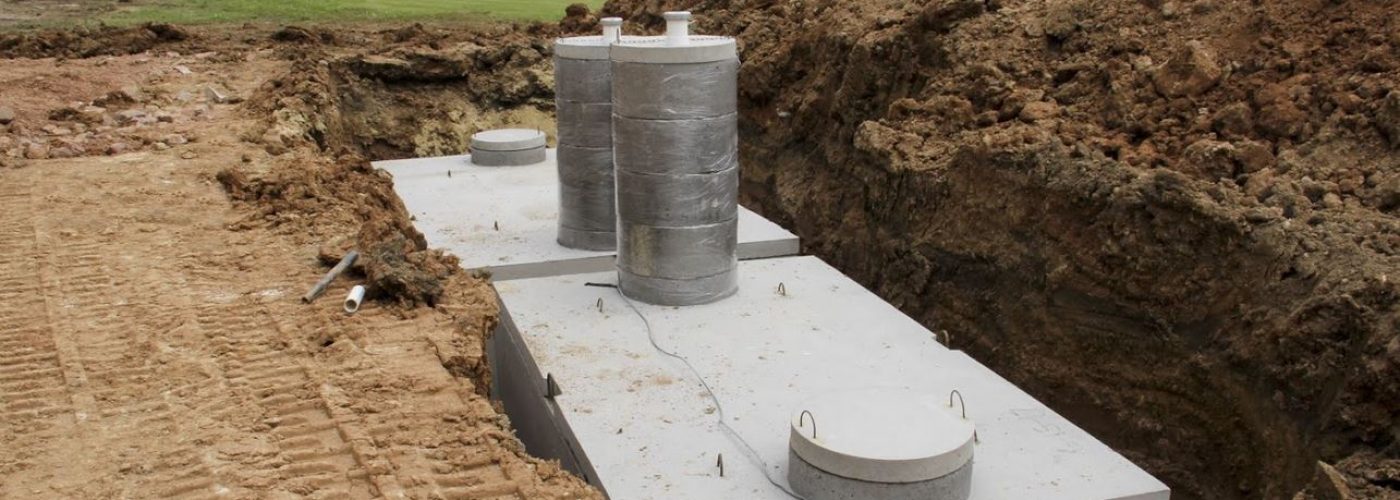Plumbing has been one of humankind’s most outstanding achievements throughout the years, and it has only continued to advance. Today, the management of wastewater from homes usually comes in two different structures. Sewer lines and septic tanks
For those who reside in urban areas, it is common for the municipal sewer lines to link several houses and transport the wastewater to a treatment facility. As for those in rural areas, individual houses often have a septic tank.
What Is A Septic Tank, And How Does It Work?
A septic tank is an underground tank responsible for basic wastewater processing and disposal. It is an option for rural homes and properties that are too far to link to the local sewer lines. A septic tank is usually concrete, fiberglass, or steel. In most cases, you can find it away from the house, generally at the property’s side or back.
When using a sink or flushing the toilet, the water flows through the underground piping into the septic tank, in which the waste and water are separated. The water is released from the tank by the drainage pipes into the adjacent soil or drainage field further from the house. The solids in the waste settle at the tank’s base, are broken down by septic bacteria and eventually pumped out during periodic maintenance. In case you detect a bad odor, or find wide wet spots above the septic tank field, repairs might be necessary, click here to find out more about possible causes of septic tank odor.
What Are The Pros Of A Septic Tank?
- Cost-effective. If you want an affordable option for wastewater management, a septic tank might be the best option. The installation of a septic tank is reasonable and does not include monthly maintenance costs while sewer lines can be costly to build and maintain. Among those residing within town limits, homeowners deal with a monthly utility bill for the sewer costs. When you have a septic tank, there are no constant recurring expenses.
- Durability. When a septic tank receives regular maintenance, it won’t require frequent replacement. Septic tanks are usually either steel or concrete, which are highly durable materials. The tanks rarely require complete replacement as long as you provide proper maintenance. In most cases, a septic tank can last from 20 to 40 years before a replacement is necessary.
- Environmentally-friendly. A septic tank will not contaminate the water supply. The tank removes bacteria before releasing the water into the soil. Additionally, any plant life nearby will absorb the recycled water. A septic tank provides a controlled form of wastewater treatment at a more rural location. It is the reason why septic tanks are a popular choice at farm homes and rural cabins. It is more environmentally-friendly than a latrine since the wastewater undergoes partial treatment naturally.
What Are The Cons Of A Septic Tank?
- Periodic maintenance. A septic tank requires routine pumping, every three to five years. In most cases, the cost of this maintenance can be high. It is important to note that septic tanks require pumping to eliminate solid waste every two to six years, which depends on how quickly the solids accumulate. Once you delay this task, the sewage can back up into your house. The downside is that it is hard to tell when the septic system needs attention until the toilets back up into the house.
- Water backing up the drain. The septic lines are more likely to end up damaged or blocked due to the flushing of items that should not be put in the toilet, such as feminine hygiene products, baby wipes or cotton balls. The indications of a backup usually include sluggish drainage of the sink, shower and bathtub as well as slow-moving toilets. Once you see these signs, get in touch with a plumber to assess the septic system.
- Possibility for rupturing pipes. When the drainage pipes moving to the septic tank end up damaged due to tree roots, digging accidents, or even an earthquake, it can result in ruptured piping. As the wastewater seeps into the soil, the ground will turn mushy, and there is a repulsive smell. The pipes that have been damaged require replacement right away.
Conclusion A septic system has a lot to offer based on its simple function, but it has its share of drawbacks. However, with proper maintenance, mainly routine pumping, a septic tank is a dependable, cost-effective wastewater management system. If you are still on a standstill on whether a septic tank is a good option for wastewater management, you need to check out the pros and cons above to help you decide if a septic tank is appropriate for your needs.






